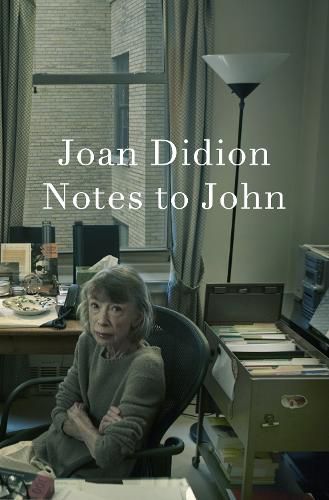Readings Newsletter
Become a Readings Member to make your shopping experience even easier.
Sign in or sign up for free!
You’re not far away from qualifying for FREE standard shipping within Australia
You’ve qualified for FREE standard shipping within Australia
The cart is loading…






An extraordinary work from the author of The Year of Magical Thinking and Blue Nights
In November 1999, Joan Didion began seeing a psychiatrist because, as she wrote to a friend, her family had had "a rough few years." She described the sessions in a journal she created for her husband, John Gregory Dunne.
For several months, Didion recorded conversations with the psychiatrist in meticulous detail. The initial sessions focused on alcoholism, adoption, depression, anxiety, guilt, and the heartbreaking complexities of her relationship with her daughter, Quintana. The subjects evolved to include her work, which she was finding difficult to maintain for sustained periods. There were discussions about her own childhood-misunderstandings and lack of communication with her mother and father, her early tendency to anticipate catastrophe-and the question of legacy, or, as she put it, "what it's been worth." The analysis would continue for more than a decade.
Didion's journal was crafted with the singular intelligence, precision, and elegance that characterize all of her writing. It is an unprecedently intimate account that reveals sides of her that were unknown, but the voice is unmistakably hers-questioning, courageous, and clear in the face of a wrenchingly painful journey.
$9.00 standard shipping within Australia
FREE standard shipping within Australia for orders over $100.00
Express & International shipping calculated at checkout
An extraordinary work from the author of The Year of Magical Thinking and Blue Nights
In November 1999, Joan Didion began seeing a psychiatrist because, as she wrote to a friend, her family had had "a rough few years." She described the sessions in a journal she created for her husband, John Gregory Dunne.
For several months, Didion recorded conversations with the psychiatrist in meticulous detail. The initial sessions focused on alcoholism, adoption, depression, anxiety, guilt, and the heartbreaking complexities of her relationship with her daughter, Quintana. The subjects evolved to include her work, which she was finding difficult to maintain for sustained periods. There were discussions about her own childhood-misunderstandings and lack of communication with her mother and father, her early tendency to anticipate catastrophe-and the question of legacy, or, as she put it, "what it's been worth." The analysis would continue for more than a decade.
Didion's journal was crafted with the singular intelligence, precision, and elegance that characterize all of her writing. It is an unprecedently intimate account that reveals sides of her that were unknown, but the voice is unmistakably hers-questioning, courageous, and clear in the face of a wrenchingly painful journey.